It may sound like a truism, but the world is actually running on petroleum. Everything is dependent on oil, from your car to the products in your local grocery store. Because, guess what: transportation, energy production and agriculture (read food) are heavily relying on petroleum and these are the back bones of our society.
Most of the people basically eat oil, because along with using it in powering tractors and stuff like that, the majority of fertilizers are made of petroleum.
Hence, in case of disaster, gas shortages are very probable and it would be a good idea to be prepared for such eventuality. In a survival situation, knowing how to store flammable items, like diesel, gas, propane or even wood could make the difference between life and death.
Storing Fuels
I can easily imagine a post apocalyptic scenario, when the infrastructure is collapsed and the local gas station is closed for years now. Can you imagine how life could be in such a situation? Without electricity, without gas? How will you plow your garden or generate electricity for your home appliances? Obviously, mankind managed to survive for thousands of years without the benefits of modern civilization (technology, I mean) but for us adapting to a world without power and transportation would be horrific.
In a real life survival situation, the best choice for you and your family, in the long term, would be storing diesel fuel instead of gasoline. I know diesel is not very popular at the moment, but keep in mind the following facts : diesel stores way easier than gasoline, diesel engines are more reliable than gasoline engines and offer better mileage, and also it’s safer to store diesel because it doesn’t explode/ignites that easy as gasoline does.
Another cool fact about diesel fuel is that a diesel engine will run on other stuff like bio-diesel (you can manufacture bio-diesel yourself), waste cooking oil or soybean oil (or any other oil for that matter). Obviously, along with diesel fuel you can always store gasoline or kerosene as well.
Now, when you’re thinking about storing fuel, you must verify what are the local rules and regulations, especially since environmental concerns nowadays make storing fuel increasingly difficult for home users.
Basically, it’s easier and cheaper to store fuel above ground than in grounded tanks, and also safer. The easiest way is to try to purchase a military surplus thing, like a refueling vehicle. In this way, you’ll be spared from trying to get a permit for a dedicated fuel tank. You should also check with your insurance company, about the eventual limitations regarding the quantity of gas/diesel you can store on your property.
Obviously, storing large quantities of flammable substances can be dangerous and you should play by the rules and stay on the safe side. Your above ground tanks must be covered in white, in order to reflect sunlight in the summer and stay cool. Also, this trick reduces the loss through evaporation. But keep in mind to camouflage it in plain sight: you don’t need obvious exposure of your emergency reserve.
- You also must regularly check out the tanks to be well sealed, in order to avoid water from getting inside.
- To be on the safe side, you should own at least two dry chemical extinguishers, rated at least 60 B:C ;these are very different from the regular “domestic” fire extinguishers and they will come handy in case of an unfortunate accident, because guess what : fuel is highly flammable and shit happens!
- Another safety related thing, your fuel must be stabilized for prolonged storage (when stored, all fuel produces condensation in the tanks where bacteria will grow, the stabilizers inhibit bacterial growth). You can use various products to stabilize your fuel, for example Sta-Bil or Pri-; each of them has different versions for gas or diesel. (PRI-G for gas, PRI-D for diesel).
- You can use an explosion proof AC electrical pump or hand pumps to move fuel around. Naturally, in case of disaster, a diesel/gasoline generator on your property would come handy, hence investing in a good power generator (a diesel one would be the best option) is an excellent idea.
Kerosene is another “storable”, since it is often used in lamps and heaters, so you can store a few dozen gallons just in case. I recommend storing kerosene in 5 gallon cans, at least ten of them at all times.
Storing Wood
If you’re using a fireplace or wood burning stoves (for cooking or for heating the residence), obviously you will need to store wood.
You can buy it, cut it yourself or both.
In a survival scenario, relying on a pellet or corn stove is a bad idea; they are dependent on electricity, and even if you manage to grow enough corn to fed them, bottom line, they’re unreliable.
The general rule of thumb is to store your wood under cover, this will keep it dry; the best way to store wood for prolonged periods of time is to build a wood shed, with a rock/concrete foundation if possible and with enough on the sides to keep the wood dry under any circumstances. Also, don’t build the wood shed next to your house, you’ll get annoyed by insects and that’s not very pleasant.
You should store enough wood to last you for the winter, at least two cords a year or more.
Storing Propane
For cooking and heating, you can also store propane. Propane tanks are usually ~1000 gallons but you can buy larger tanks from individuals or specialized companies.
Keep the tanks as far as possible from the house and surrounded by a chain like fence, since propane is highly flammable and if it explodes, it goes with a bang.
The possibility of your propane tank exploding is remote, but it’s better to be prepared for any imaginable scenario.
You can also store various lubricants, engine oil, paint thinners, cleaners, gun lubricants, in case anything goes wrong (read disaster strikes).
You must have all the things required to keep your operation going for as long as it takes.
This article has been written by Chris Black for Survivopedia.
Photo sources: Dreamstime.


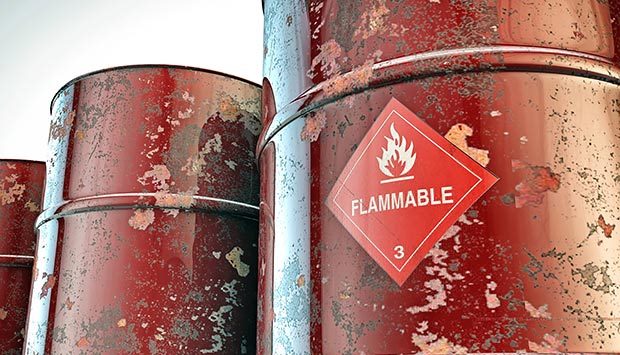
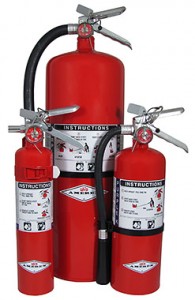
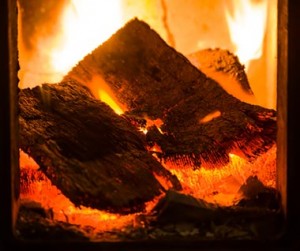

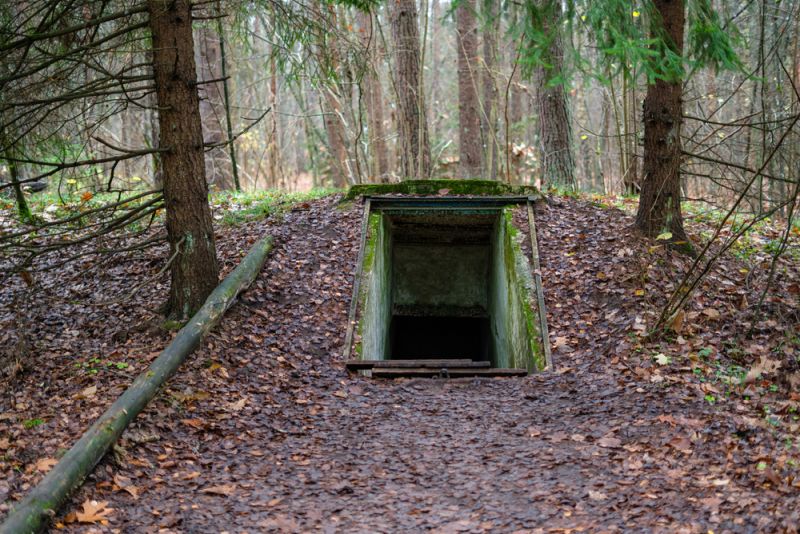
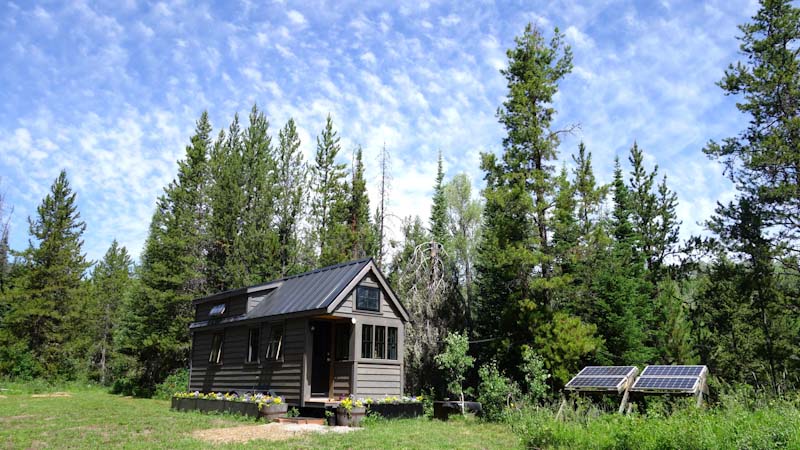



Pingback:How to Make Gel Fuel at Home for Survival | SurvivoPedia | April 23, 2014
|
Pingback:How to Make Gel Fuel at Home for Survival | TheSurvivalPlaceBlog | April 24, 2014
|
Pingback:How to Make Gel Fuel at Home for Survival | Ask a Prepper | August 29, 2014
|
Pingback:How to Make Gel Fuel at Home for Survival | intelwars2 | September 13, 2014
|
Pingback:How to Make Gel Fuel at Home for Survival | My Family Survival Plan | September 22, 2014
|
Pingback:5 Deathly Scenarios More Probable Than A Natural Disaster | Survival skills, survival guns, survival guide | March 16, 2015
|
Pingback:3 Crucial Steps When Digging A Well | Survival skills, survival guns, survival guide | April 20, 2015
|
Pingback:3 Crucial Steps When Digging A Well | The Prepper Dome | April 21, 2015
|
Ian | June 30, 2015
|
When it comes to a diesel generator I’ve long advocated these over the gasoline/petrol type.
One thing to remember is that basic diesel engines can burn practically anything liquid, even (ahem) fine whiskey (cough cough)
They can, to varying degrees, run on paraffin, heating oil, white spirits. You can even treat it like a 2-stroke petrol engine and run it on petrol/oil provided you add plenty of oil to the mix. Just make sure it’s well ventilated
You can even get stoves which will burn the same mixes, best types are military surplus, so are very robust given they are intended for field use
Pingback:The DOs And DON’Ts Of Gun Cleaning | Survival skills, survival guns, survival guide | October 9, 2015
|
Pingback:The DOs And DON’Ts Of Gun Cleaningdisasterdefense.us | disasterdefense.us | October 10, 2015
|
Pingback:How To Heat Your Home Without Electricity | Survival skills, survival guns, survival guide | November 12, 2015
|
Pingback:12 Ways To Protect Your Heat Sources From Freezing | Survivopedia | February 11, 2016
|
Pingback:12 Ways To Protect Your Heat Sources From Freezing | Family Survival Headlines | February 24, 2016
|
Pingback:How The World Would Change Without Fuels? | NewZSentinel | May 23, 2016
|
Pingback:How The World Would Change Without Fuels? | Prepper's Survival Homestead | May 23, 2016
|
Pingback:How The World Would Change Without Fuels? | Survivopedia | May 23, 2016
|
Damavand | March 31, 2017
|
Have you ever considered about adding a little biit
more than just your articles? I mean, whbat you say is important
and everything. However imagine if you added some
grewat visuals or videos to give yourr posts more,
“pop”! Your content is excellent but with pics annd viideo clips, this blog could undeniably be onne of the best in its niche.
Wonderful blog!